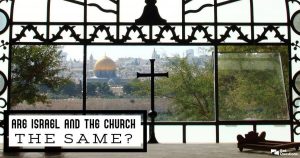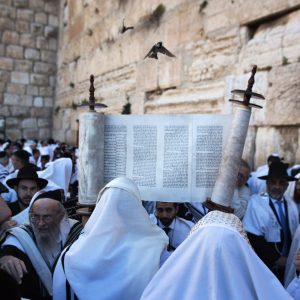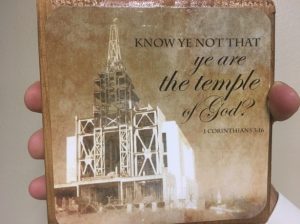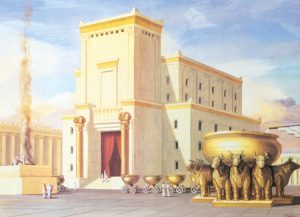Welcome to Day 1401 of our Wisdom-Trek, and thank you for joining me.
I am Guthrie Chamberlain, Your Guide to Wisdom
Mastering the Bible – Israel Today and the Temple of God – Worldview Wednesday
Wisdom – the final frontier to true knowledge. Welcome to Wisdom-Trek! Where our mission is to create a legacy of wisdom, to seek out discernment and insights, to boldly grow where few have chosen to grow before. Hello, my friend, I am Guthrie Chamberlain, your captain on our journey to increase Wisdom and Create a Living Legacy. Thank you for joining us today as we explore wisdom on our 2nd millennium of podcasts. Today is Day 1401 of our Trek, and it is Worldview Wednesday. Creating a Biblical Worldview is essential to have a proper perspective on today’s current events. To establish a Biblical Worldview, you must have a proper understanding of God and His Word. Our focus for the next several months on Worldview Wednesday is Mastering the Bible, through a series of brief insights. These insights are extracted from a book of the same title from one of today’s most prominent Hebrew Scholars, Dr. Micheal S. Heiser. This book is a collection of insights designed to help you understand the Bible better. When we let the Bible be what it is, we can understand it as the original readers did, and as its writers intended. Each week we will explore two insights.
Mastering The Bible – Israel Today and the Temple of God
Insight Sixty-Nine: In the New Testament “Israel” Doesn’t Always Refer to the Nation or Its People
 Earlier, we saw that use of the term “Israel” varied in the Old Testament. Sometimes “Israel” referred to all twelve tribes, and other times it referred to the northern kingdom of ten tribes following the fracturing of the kingdom. The variation in meaning, then, was due to politics and geography.
Earlier, we saw that use of the term “Israel” varied in the Old Testament. Sometimes “Israel” referred to all twelve tribes, and other times it referred to the northern kingdom of ten tribes following the fracturing of the kingdom. The variation in meaning, then, was due to politics and geography.
The New Testament also uses “Israel” in a variety of ways. Sometimes it refers to the Promised Land, the twelve tribes, or ethnic Jews. But this time, the reason is driven by theology.
The birth of the early church in the book of Acts shows us plainly that God’s people were never intended to be identified with ethnic Israel forever. Gentiles were destined for inclusion in the people of God, as was told to Abraham in Genesis 12:3. I will bless those who bless you and curse those who treat you with contempt. All the families on earth will be blessed through you. Because of what Jesus did on the cross, the gentiles were included in Israel. The New Testament refers to this blending as a “mystery” in Ephesians 3:3-9. Paul makes this theology explicit in his letter to the Galatians. He begins with the original promise given to Abraham, father of Israel, as he expands this thought in Galatians 3:7-9. The real children of Abraham, then, are those who put their faith in God. What’s more, the Scriptures looked forward to this time when God would make the Gentiles right in his sight because of their faith. God proclaimed this good news to Abraham long ago when he said, “All nations will be blessed through you.” So all who put their faith in Christ share the same blessing Abraham received because of his faith.
Paul moves from this opening to a discussion of the law. He denies the law’s saving power and instead holds up faith in Christ. Israel’s Messiah, as the way of salvation. Then he closes his argument with language that would startle both the Jewish and gentile unbeliever in Galatians 3:25-29:
And now that the way of faith has come, we no longer need the law as our guardian. For you are all children of God through faith in Christ Jesus. And all who have been united with Christ in baptism have put on Christ, like putting on new clothes. There is no longer Jew or Gentile, slave or free, male and female. For you are all one in Christ Jesus. And now that you belong to Christ, you are the true children of Abraham. You are his heirs, and God’s promise to Abraham belongs to you.
Paul couldn’t be more explicit: if you are Christ’s, then you are Abraham’s offspring, heirs according to promise. There is one people of God.
Insight Seventy: The People of God Are the Temple of God
 Presuming they had access to the Scriptures, the Bible of the earliest Christians was the Old Testament. We have the Old Testament today, of course, but we look at it much differently than early Christians did. One reason is that we live at a time far removed from the days of Jesus, whom the early church expected would soon return. Another is that we live on the other side of the catastrophic events of AD 70, the year the Romans destroyed the Jewish temple.
Presuming they had access to the Scriptures, the Bible of the earliest Christians was the Old Testament. We have the Old Testament today, of course, but we look at it much differently than early Christians did. One reason is that we live at a time far removed from the days of Jesus, whom the early church expected would soon return. Another is that we live on the other side of the catastrophic events of AD 70, the year the Romans destroyed the Jewish temple.
One of the ways this time differential plays out is the way Christians look at Ezekiel 40-48, the fantastic prophecy of a future temple. Since the prophecy appears in the book of Ezekiel, it was written at the time (or shortly after that) Israel’s first temple, the temple of Solomon, was destroyed in 586 BC. When the Jews returned from exile, they rebuilt the temple. That second temple (with some updating by Herod) was the temple known to Jesus and the apostles. This second temple was the one destroyed in AD 70.
Many Christians today look at Ezekiel 40-48 and believe it prophesies another literal temple that will be rebuilt just before Jesus returns. No New Testament author, however, saw the prophecy that way. There are no direct quotations of Ezekiel’s prophecy in the New Testament. That isn’t surprising since the temple was still standing in the days of the New Testament writers, at least up until AD 70. But even after that date, there are no direct quotations. In Revelation, a book that most would date well into the 90s, there are allusions to an idealized temple in Revelation 21, but nothing directly deriving from Ezekiel 40-48. There’s a reason for this seemingly odd omission. In New Testament theology, believers are the temple of God. They have replaced the temple. Believers indwelt by the Spirit are now the place sanctified by the sacrificial blood of Jesus, where God’s presence dwells. This temple was made at the resurrection and not by human hands in Mark 14:58 when Christ was on trial, the priest said. “We heard him say, ‘I will destroy this Temple made with human hands, and in three days I will build another, made without human hands.’”
There’s a reason for this seemingly odd omission. In New Testament theology, believers are the temple of God. They have replaced the temple. Believers indwelt by the Spirit are now the place sanctified by the sacrificial blood of Jesus, where God’s presence dwells. This temple was made at the resurrection and not by human hands in Mark 14:58 when Christ was on trial, the priest said. “We heard him say, ‘I will destroy this Temple made with human hands, and in three days I will build another, made without human hands.’”
Paul is explicit in this regard. In 1 Corinthians 3:16, he writes, Don’t you realize that all of you together are the temple of God and that the Spirit of God lives in you? Here Paul speaks to the Corinthians collectively. But in 1 Corinthians 6:19-20, he applies this same thinking to individual believers: Don’t you realize that your body is the temple of the Holy Spirit, who lives in you and was given to you by God? You do not belong to yourself, for God bought you with a high price. So you must honor God with your body. Paul repeatedly emphasized that believers are the place where the presence of God dwells (cf. Romans 8:9-11; Ephesians 2:22; 2 Timothy 1:4).
For early believers, there was no need to worship at the temple—they were the temple. This was significant for a people of God that consisted of both Jews and gentiles. Had a temple been essential, gentiles would have been prohibited from worshipping God by the Jews who didn’t follow Jesus. The indwelling of the Spirit removed that obstacle.
That will conclude this week’s lesson on another two insights from Dr. Heiser’s book “Mastering The Bible.” Next Worldview Wednesday, we will continue with two additional insights. I believe you will find each Worldview Wednesday an interesting topic to consider as we build our Biblical Worldview.
Tomorrow we will continue with our 3-minute Humor nugget that will provide you with a bit of cheer, which will help you to lighten up and live a rich and satisfying life. So encourage your friends and family to join us and then come along with us tomorrow for another day of ‘Wisdom-Trek, Creating a Legacy.’ If you would like to listen to any of our past 1400 treks or read the Wisdom Journal, they are available at Wisdom-Trek.com. I encourage you to subscribe to Wisdom-Trek on your favorite podcast player so that each day’s trek will be downloaded automatically.
If you would like to listen to any of our past 1400 treks or read the Wisdom Journal, they are available at Wisdom-Trek.com. I encourage you to subscribe to Wisdom-Trek on your favorite podcast player so that each day’s trek will be downloaded automatically.
Thank you so much for allowing me to be your guide, mentor, and, most of all, your friend as I serve you in through this Wisdom-Trek podcast and journal.
As we take this Trek together, let us always:
- Live Abundantly (Fully)
- Love Unconditionally
- Listen Intentionally
- Learn Continuously
- Lend to others Generously
- Lead with Integrity
- Leave a Living Legacy Each Day
I am Guthrie Chamberlain….reminding you to ’Keep Moving Forward,’ ‘Enjoy your Journey,’ and ‘Create a Great Day…Everyday’! See you Tomorrow!
Leave a Reply